Related Research Articles
Castile or Castille is a territory of imprecise limits located in Spain. The use of the concept of Castile relies on the assimilation of a 19th-century determinist geographical notion, that of Castile as Spain's centro mesetario with a long-gone historical entity of diachronically variable territorial extension.

Martín Fernández de Navarrete y Ximénez de Tejada, was a Spanish noble, grandson of the Marquess of Ximenez de Tejada, knight of the Order of Malta, politician and historian. He was a Spanish senator and Director of the Spanish Royal Academy of History (1824-1844).
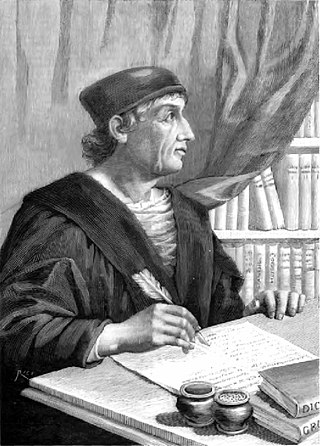
Antonio de Nebrija was the most influential Spanish humanist of his era. He wrote poetry, commented on literary works, and encouraged the study of classical languages and literature, but his most important contributions were in the fields of grammar and lexicography. Nebrija was the author of the Spanish Grammar and the first dictionary of the Spanish language (1495). His grammar is the first published grammar study of any modern European language. His chief works were published and republished many times during and after his life and his scholarship had a great influence for more than a century, both in Spain and in the expanding Spanish Empire.
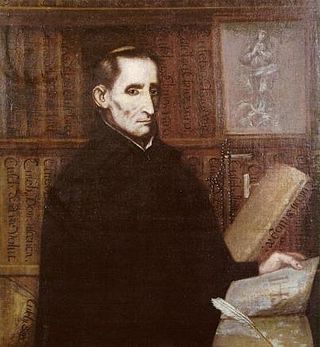
Juan Eusebio Nieremberg y Ottín was a Spanish Jesuit, polymath and mystic.
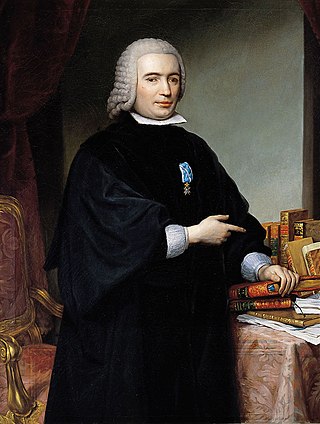
Pedro Rodríguez de Campomanes y Pérez Sorriba, 1st Count of Campomanes, was a Spanish statesman, economist, and writer who was Minister of the Treasury in 1760. He was an adherent of the position that the state held supremacy over the Church, often called Erastianism. Campomanes was part of the government of Charles III. A staunch anti-Jesuit, one of the biggest foes of the order, Campomanes was the main driving force behind their expulsion.

The Pinzón brothers were Spanish sailors, pirates, explorers and fishermen, natives of Palos de la Frontera, Huelva, Spain. Martín Alonso, Francisco Martín and Vicente Yáñez, participated in Christopher Columbus's first expedition to the New World and in other voyages of discovery and exploration in the late 15th and early 16th centuries.
Gloria Guardia was a Panamanian novelist, essayist and journalist whose works received recognition in Latin America, Europe, Australia and Japan. She was a Fellow at the Panamanian Academy of Letters and Associate Fellow at the Spanish Royal Academy, the Colombian and the Nicaraguan Academy of Letters

Juan Antonio Villacañas was a Spanish poet, essayist and critic. In 2015, he was named distinguished son of the city of Toledo.
Juan Cobo OP was Spanish Dominican missionary, diplomat, astronomer and sinologist.
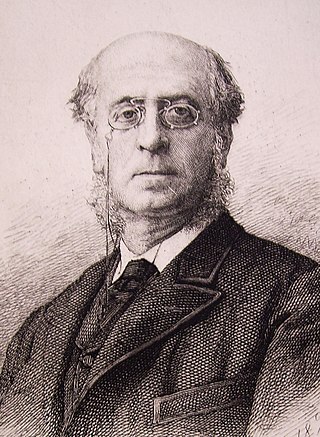
Manuel Silvela y Le Vielleuze KStJ was a Spanish politician, lawyer, writer and journalist who held several importante governmental offices, such as Minister of State and Councillor of State.
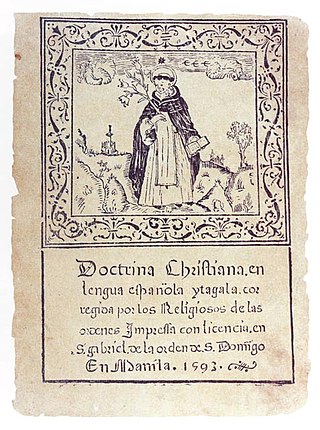
The Doctrina Christiana were two early books on the catechism of the Catholic Church, both published 1593 in Manila, Philippines. These are two of the earliest printed books in the Philippines.
José Eusebio de Llano Zapata (1721–1780) was a Peruvian scholar, writer and scientist. He was born in Lima, Peru in 1721 and died in Cadiz, Spain in 1780. He was the son of Diego de Llano Zapata and Rosa Valenzuela.
Antonio Colinas Lobato is a Spanish writer and intellectual who was born in La Bañeza, León, Spain on January 30, 1946. He has published a variety of works, but is considered to be above all a poet. He won Spain's National Prize for Literature in 1982, among several other honors and awards.
This is a list of Spanish television related events from 1961.
Antoni Palau Dulcet , librarian and bibliographer, author of the monumental Manual del librero hispano americano, Conca de Barbera (1912),and numerous guides from "Montblanc, Poblet i la Conca" (1930-1932).
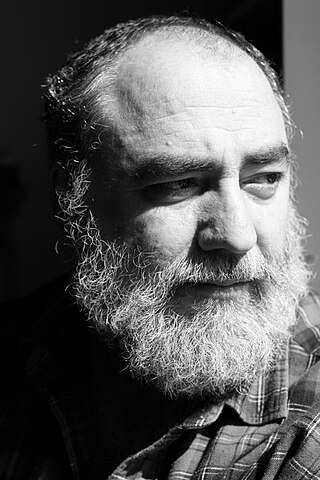
Javier Sáez del Álamo is a Spanish sociologist, translator, and gay rights activist, specialising in queer theory and psychoanalysis.
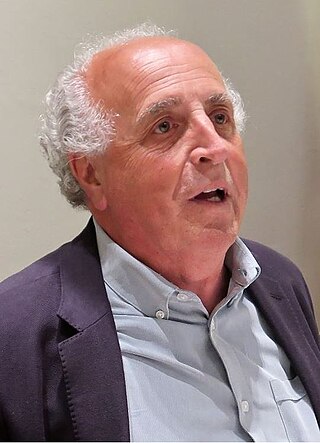
Antonio Rodríguez de las Heras Pérez was a Spanish historian, a professor at the Charles III University of Madrid, Dean of the Faculty of Humanities, Communication and Documentation and Director of the Institute of Culture and Technology of the Carlos III University. He was also a member of the Advisory Council of TeamLabs since its foundation in 2013.

Guadalupe Grande Aguirre was a Spanish poet. She had a degree in social anthropology from the Complutense University of Madrid.

Roberto Levillier was an Argentine historian and diplomat.
References
- ↑ Tony Campbell, Chronicle for 1981–, Imago Mundi , Vol. 34 (1982), pp.90-98.
- ↑ The Carlos Sanz Collection, University of Miami.